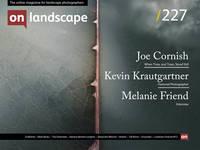An interview with Melanie Friend

Melanie Friend
In the 1980s and early 1990s Melanie Friend worked extensively as a photojournalist; her work was published in a range of publications including The Guardian and The Independent. From the mid 1990s she began to focus on the wider aspects of war through long-term photographic projects. Touring exhibitions included Homes & Gardens: Documenting the Invisible (1996) which highlighted human rights abuses in Kosovo, and Border Country (2007), which documented the experiences of asylum seekers detained in the UK’s immigration removal centres. Her book No Place Like Home: Echoes from Kosovowas published in 2001 (Midnight Editions, USA).
The Home Front (2013), a touring exhibition originally curated by Pippa Oldfield of Impressions Gallery, looked at the links between the military, marketing and entertainment, with a particular focus on air shows; it was published as a book by Dewi Lewis in association with Impressions Gallery. In autumn 2020 The Home Front was shown as a solo show at Farleys Gallery, UK, alongside Lee Miller’s WWII work Grim Glory: Lee Miller’s Britain at War.
In October 2020 her latest work, The Plain, focusing on the military training area of Salisbury Plain, was published by Dewi Lewis.
From 2003 to 2019 Melanie was Reader in Photography in the School of Media, Film & Music at the University of Sussex.

Charlotte Parkin
Head of Marketing & Sub Editor for On Landscape. Dabble in digital photography, open water swimmer, cooking buff & yogi.
Last Autumn, Neil from Beyond Words dropped me an email to say that he'd stocked a new book The Plain by Melanie Friend and suggested that it could be of interest to the readers of our magazine. I ordered a copy of the book and, over a cup of tea one afternoon, I took a read. The images drew me in and left me asking so many questions and the essays in the book drew me even deeper into the history of Salisbury Plain.
On the publisher's website, it states "The Plain is both the UK’s largest military training ground and also a conservation area shared with archaeologists and dog walkers, larks and corn buntings, wildflowers and rare forms of wildlife." How do these two worlds co-exists or do they?
We are delighted to publish our in-depth interview with Melanie, covering her love of photography, her earlier photojournalist career, her previous books and how the project The Plain started and evolved into the book. We hope you enjoy reading this as much as I have researching and publishing it.
Tell me about where your passion for photography came from and why the landscape is important to you?
Recently I’ve been digging around in my cupboards and unearthed a stash of negatives I didn’t know I had. It seems that in the mid-1970s, when I was a teenager, I’d photographed much more than I thought. Judging by the size of the negatives, I must have borrowed my Dad’s Box Brownie or my Mum’s Instamatic 126 to photograph my friends and family, just larking about, recording moments. Then I began to get more interested in compositions, graduating to owning an Olympus Trip, and eventually moving to SLRs in my early 20s, when I began to see photography in a different way.
In 1980/81, part of my editorial assistant job at African Business magazine was to organise the picture library, and I was intrigued by both the historic and contemporary photographs in the collection. Occasionally photographers came into the office and meeting them got me thinking; perhaps I could do that too? I saw photography as a way of escaping a lifetime behind a desk. I started teaching myself, and found regular commissioned work for a building magazine, before moving to newspaper work (the Times Education Supplement & The Independent, among others). As I became more politically involved, it was about documenting protest and injustice, seeing photography (at times too idealistically) as a tool for change, and as a way to communicate. The 1980s was the time of Margaret Thatcher’s premiership and there was a huge amount to protest about here in the UK – so I photographed numerous demonstrations. And in my 30s I travelled widely because of my work as a photojournalist (after the fall of the Berlin Wall, I focused on eastern Europe: Yugoslavia, Bulgaria, Albania, and what is now called North Macedonia), and I met amazing people I wouldn’t otherwise have met. So, in the beginning, my love of photography was bound up with the many adventures and friendships it brought me. Along the way, I also took inspiration from photography exhibitions and photographers’ monographs.

